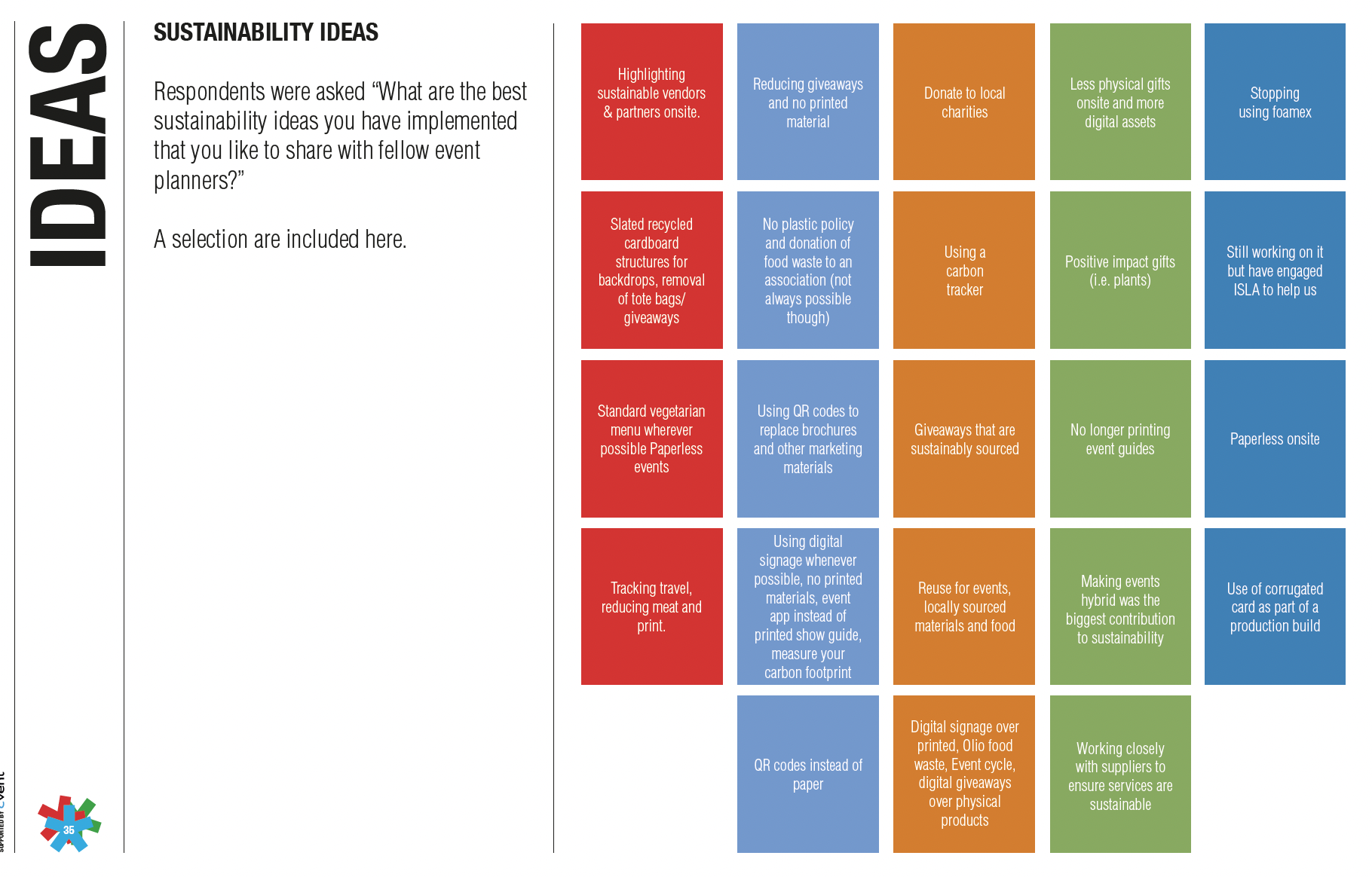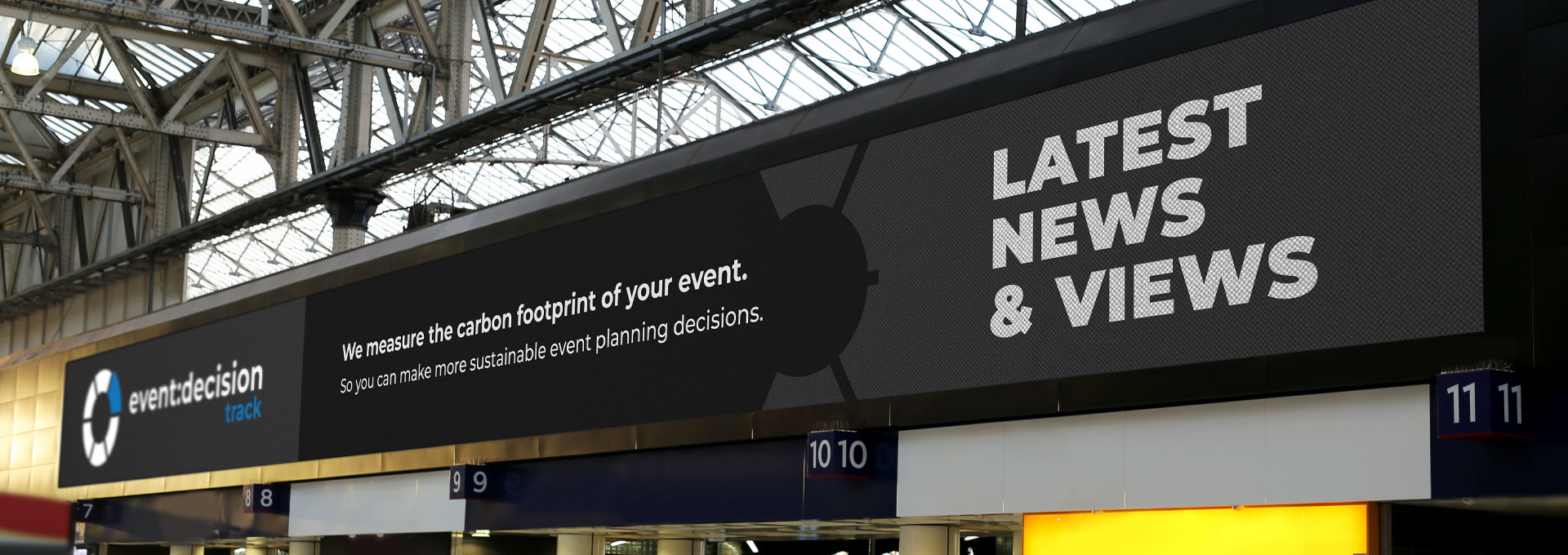Progress on sustainability in events: a corporate perspective
Recent industry reports reveal a shift in priorities, with sustainability slipping off the immediate corporate agenda.
This change is largely down to budget pressures and the complex decision-making landscape that corporations face. As we reflect on the progress of sustainability in corporate events, it becomes clear that while there are efforts to integrate sustainable practices, significant challenges remain.
Sustainability slipping off the immediate agenda?
Despite the growing awareness and commitment to sustainability, the urgency to implement sustainable practices in corporate events has somewhat waned. The primary reason for this shift is the overarching budget constraints that many corporations are grappling with. As companies navigate the economic uncertainties and tighter budgets, the allocation of resources towards sustainability initiatives often takes a backseat. This is not to say that corporations have completely abandoned their sustainability goals, but that their immediate focus has shifted towards cost-saving measures and financial caution.
The role of corporate decision-making
The responsibility of making sustainable choices in corporate events predominantly falls on the shoulders of the corporations themselves, despite the guidance and recommendations provided by their event agencies. Event agencies play a crucial role in suggesting sustainable practices and highlighting potential benefits, but ultimately, the decision to implement these recommendations rests with their client. This places significant pressure on corporations to balance sustainability with their other business priorities, sometimes leading to compromises.
Benchmarking and policy development phase
Currently, most corporations are in what we see as a phase of sustainability benchmarking and policy development rather than making substantial leaps in sustainability. They are assessing their current practices, identifying areas for improvement, and developing the comprehensive sustainability policies that can be implemented in the future. Benchmarking provides a valuable framework for corporations to measure their sustainability efforts against industry standards and best practices. It also facilitates the identification of gaps and opportunities for improvement, paving the way for more strategic and impactful sustainability initiatives as the economic climate improves.
Challenges in implementing sustainability
The path to achieving sustainability in corporate events requires a reframing of event scope and format, not a re-jig of existing deliverables. Can corporates achieve the same or better ROI with a different mix of in-person & virtual? Should they run more regional events in place of larger prominent global events? There are some great examples of brands achieving both of these. We should support our corporate Eventprof friends in framing this discussion with their stakeholders. After all, many of these discussions are outside the area of expertise of many budget holders. The easy option of on-site and external agency cost-cutting just doesn’t cut the mustard in large-scale sustainability gains.
One challenge is the lack of resources and expertise within corporations to drive sustainable initiatives. While event agencies can provide valuable insights and support, the onus is on corporations to allocate resources and build internal capabilities to manage sustainability. This requires investment in training, hiring sustainability experts, and establishing dedicated teams to oversee their sustainability efforts.
Additionally, there is a notable gap in knowledge and awareness about sustainable practices within the corporate sector. Many corporations are still in the early stages of understanding the full scope of sustainability and its implications for their events. This knowledge gap can hinder the adoption of sustainable practices and slow down progress.
Corporate perspectives on sustainability
Corporates acknowledge the importance of sustainability and express a strong commitment to integrating sustainable practices in their events. However, they also recognise the practical challenges and constraints that they face. For many, the focus is currently on building a strong foundation for future sustainability drives. Corporations are increasingly leveraging benchmarking data to identify best practices and set realistic targets for their sustainability initiatives. This structured approach ensures that when they do implement sustainable practices, they are well-informed and strategically aligned with their overall business objectives.
Strategic initiatives for sustainability
Despite the challenges, there is evidence that corporations are being creative about enhancing sustainability in their events and are open to cost-effective and creative ideas. This graphic shows some recent sustainability ideas which corporates have found effective:

ICE Corporate Event Planner Research 2024 supported by Cvent
The journey towards sustainability in corporate events is complex. While there has been a shift in immediate priorities due to budget pressures, it is nevertheless the case that corporates remain committed to integrating sustainable practices in the long term. This current phase of benchmarking and policy development is an important step towards achieving this goal. By leveraging data, setting clear goals, and adopting strategic initiatives, companies can navigate the challenges and make meaningful progress in their sustainability journey. As they continue to build a strong foundation for sustainability, the events industry can look forward to a future where sustainable practices are not just an option but a standard.
For more details on how event:decision can help meet your sustainability goals, get in touch.








